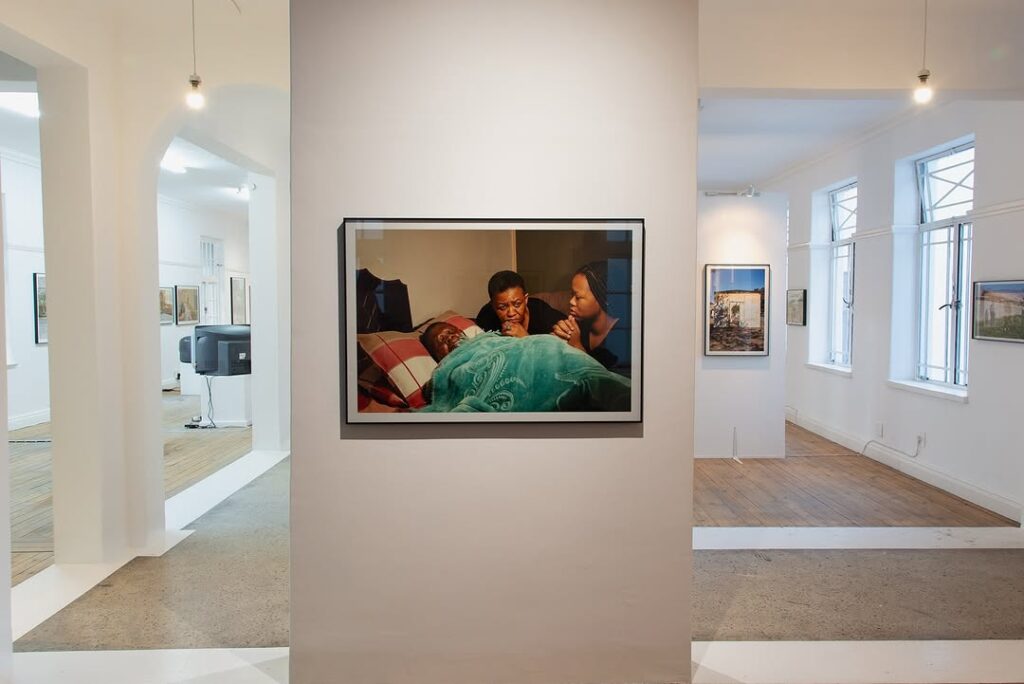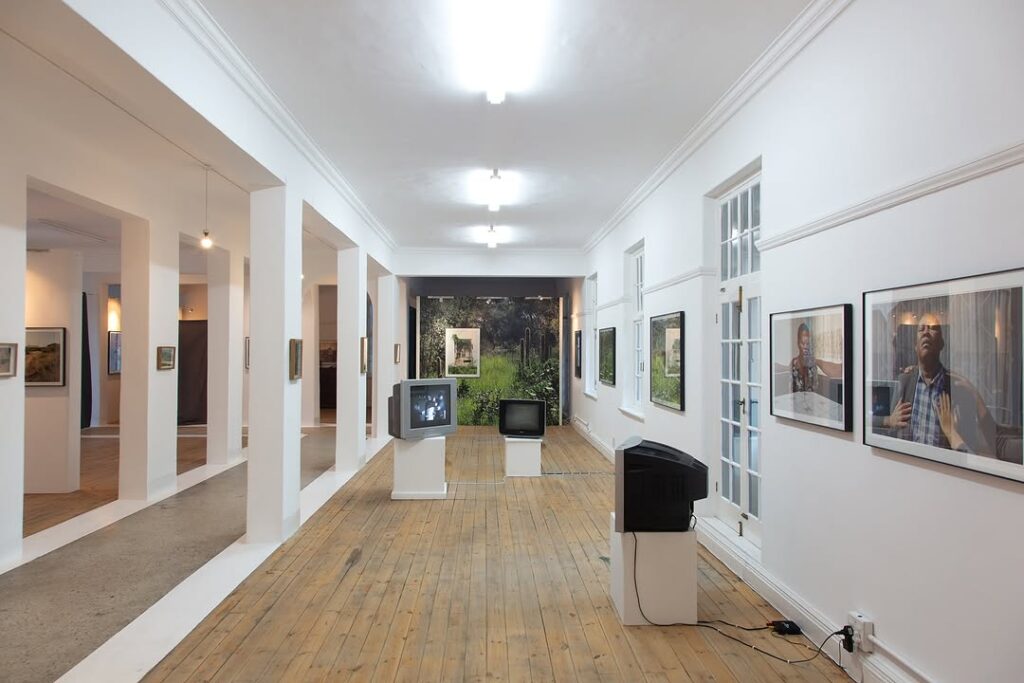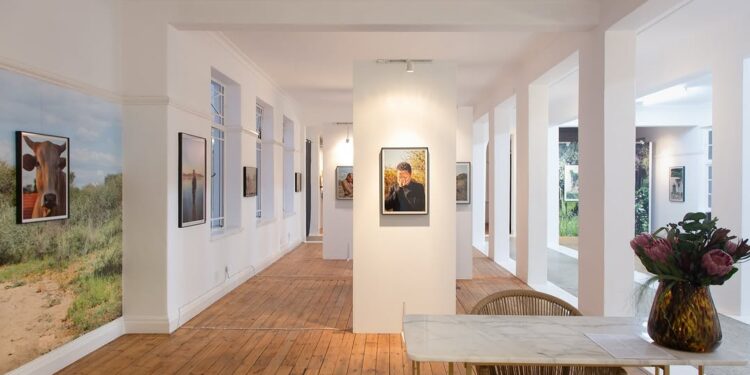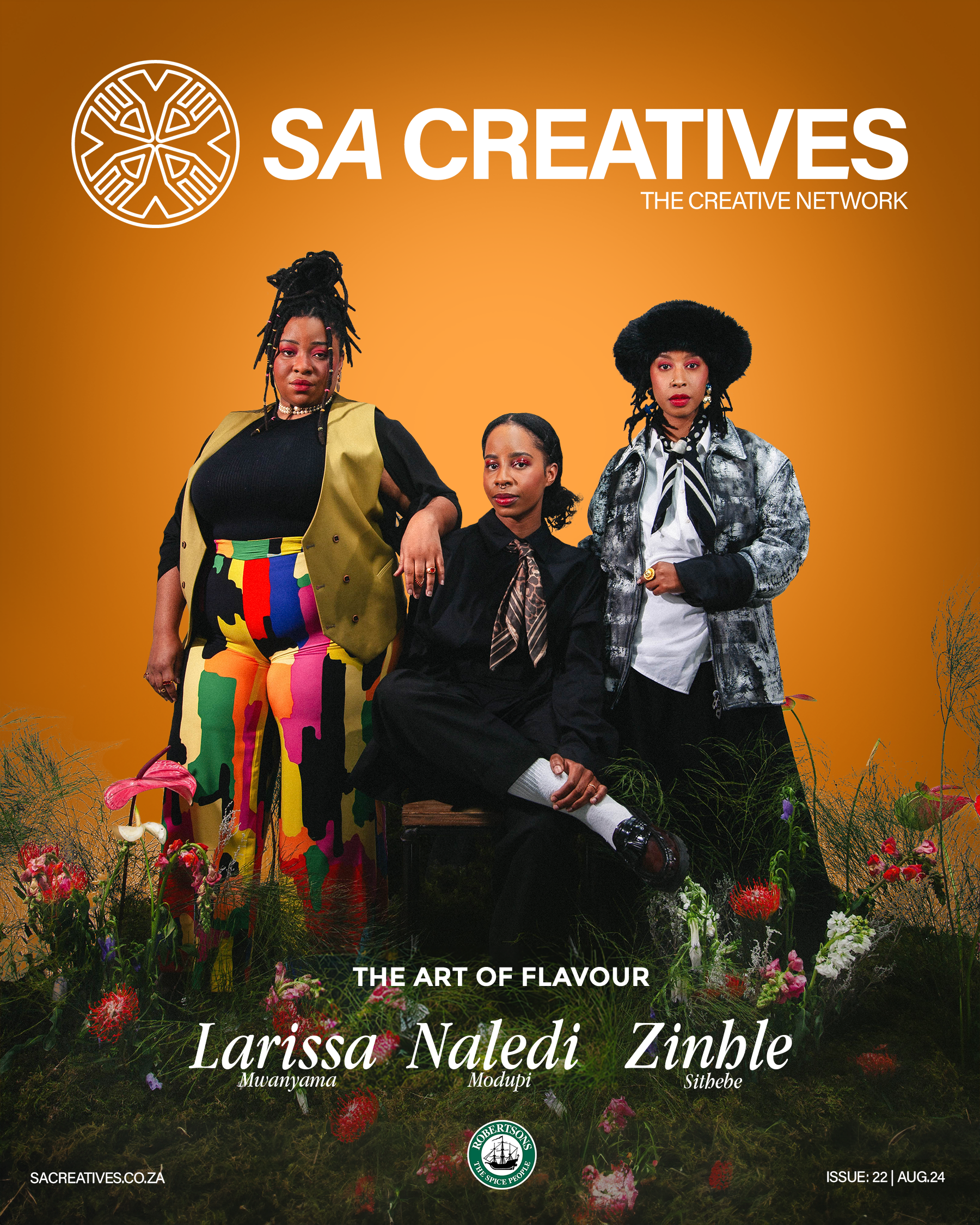Thero Makepe,, is set to showcase his new solo exhibition, “We Didn’t Choose to be Born Here,” at the Lemkus Gallery in Cape Town, South Africa. This exhibition, curated by Jared Leite, will run from February 15 to April 12, 2025. It marks the first time Thero’s work will be displayed in Africa, making it an occasion for both the artist and the local community.
Thero’s journey as an artist is connected to his family history. He was born during a time of great change in Southern Africa, as the region transitioned from apartheid to democracy. His work reflects the complex history of this time, looking at themes of identity, resistance, and the legacy of his ancestors. One of his inspirations is his late uncle, Zephania Mothopeng, a key figure in the fight against apartheid who was imprisoned alongside Nelson Mandela.

READ MORE: Sthandiwe Kgoroge Joins The Jury At The Joburg Film Festival
Music also plays a vital role in Makepe’s life. His grandfather, Hippolytus Mothopheng, and his uncle, John Mothopeng, were influential musicians whose work supported the anti-colonial movement. Thero’s earlier project, “Music from My Good Eye,” celebrated his family’s musical lineage and its connection to activism. Through photography, he aims to tell these important stories and preserve memories for future generations.

Unlike his predecessors, who often expressed urgency and anger in their work, Thero’s photographs convey a sense of calm and depth. His images capture heavy subjects, such as grief and exile, with stillness. For example, he highlights lesser-known events, like the massacre of anti-apartheid activists by the South African Defense Force, using visuals that provoke thought and reflection.
READ MORE: Joburg Film Festival To Open With Powerful World Premiere Of Ernest Cole – Lost & Found
Thero’s art process also includes bookmaking, where he carefully arranges different pieces of his work into a meaningful whole. This approach is evident in “We Didn’t Choose to be Born Here,” where photographs and archival materials come together to tell a story of experiences and memories. His family members are not just subjects in his work; they actively participate in recreating their shared history and handling their pain.





